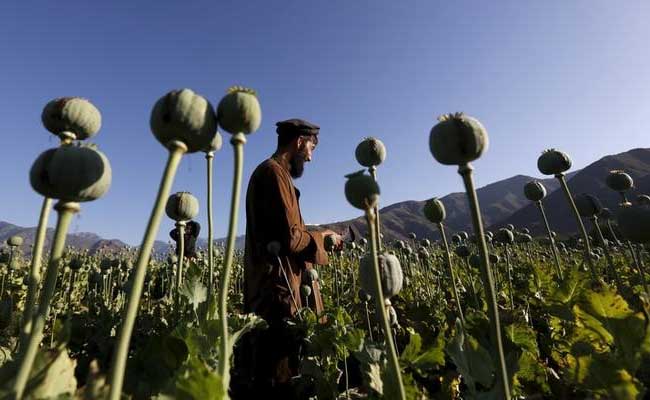
Introduction
According to a recent report published by the United Nations (UN), Afghanistan emerges as the leading contributor, accounting for a staggering 80% of the world’s illicit opium production in 2022. This article delves into the findings of the report, shedding light on the implications of Afghanistan’s dominant position in the global opium trade.
The Magnitude of Afghanistan’s Opium Production
Afghanistan has long been notorious for its significant role in the production of opium, a key ingredient in the illicit drug market. The UN report underscores the magnitude of this issue, highlighting that the country’s opium production reached unprecedented levels in 2022. With an astounding 80% share of the global opium production, Afghanistan solidifies its position as the primary source of this illicit substance.
Factors Contributing to Afghanistan’s Dominance
- Geographical Advantage: Afghanistan’s unique geographical location plays a pivotal role in facilitating its dominance in opium production. The country is blessed with favorable climatic conditions and vast swathes of fertile land, providing ideal conditions for cultivating poppy plants, the primary source of opium.
- Socioeconomic Challenges: Widespread poverty, political instability, and ongoing armed conflicts in Afghanistan have created an environment conducive to the flourishing opium trade. For many impoverished farmers, cultivating poppy becomes an appealing economic opportunity due to its high profitability compared to other crops.
- Weak Governance and Corruption: The country’s weak governance structures, coupled with pervasive corruption, have allowed illicit drug networks to operate with relative ease. Insufficient law enforcement, lack of effective counter-narcotic measures, and the presence of powerful drug lords have all contributed to the sustained growth of Afghanistan’s opium production.
Consequences of Afghanistan’s Opium Production
The dominance of Afghanistan’s opium production carries significant consequences at various levels, affecting both the nation itself and the international community.
1. National Implications
- Economic Dependence: Afghanistan’s heavy reliance on opium production perpetuates its economic dependence on the illicit drug trade. This not only hampers the development of legitimate industries but also fosters a cycle of poverty and instability.
- Undermined Rule of Law: The flourishing opium trade undermines the rule of law in Afghanistan. It fuels corruption, weakens state institutions, and erodes public trust in governance structures.
2. Global Ramifications
- Drug Trafficking: Afghanistan’s opium production directly contributes to the global drug trafficking market, supplying the demand for illicit narcotics in various regions. This sustains addiction, fuels organized crime, and poses a significant challenge to international efforts to combat drug abuse.
- Public Health Concerns: The widespread availability of illicit opiates originating from Afghanistan perpetuates public health concerns worldwide. Substance abuse, addiction, and associated health risks continue to plague communities across the globe.
International Efforts to Address the Issue
Recognizing the urgency and magnitude of the problem, international organizations and governments have been actively engaged in efforts to combat Afghanistan’s dominance in opium production.
- Alternative Livelihood Programs: Various initiatives aim to provide Afghan farmers with viable alternatives to opium cultivation. These programs promote the cultivation of legal crops, offer vocational training, and provide economic support to break the cycle of dependency on illicit drugs.
